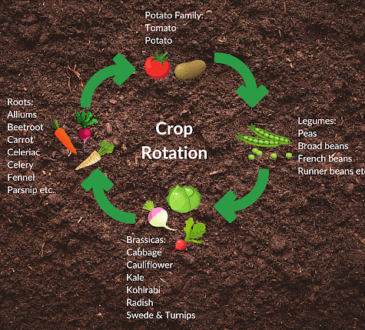
Introduction:
In our quest for abundant food, it’s crucial to pause and think about how we grow & what we eat! The choices we make in agriculture have a direct impact not only on our soil but also on our own well-being. Sustainable agriculture practices are becoming increasingly important as we strive to strike a balance between feeding a growing population and preserving the health of our planet. Sustainable agriculture is a farming approach that prioritizes environmental health, social equity, and economic viability. Unlike conventional farming methods that often exploit natural resources, sustainable agriculture aims to meet the needs of the present without compromising the ability of future generations to meet their own needs.
Importance of Sustainable Agriculture:
Environmental Conservation:
Sustainable agriculture focuses on preserving biodiversity, minimizing soil erosion, and reducing the use of harmful chemicals. By adopting eco-friendly practices, farmers contribute to the overall health of ecosystems.
Soil Health:
Healthy soil is the foundation of sustainable agriculture. Practices such as crop rotation, cover cropping, and organic fertilization enhance soil fertility, structure, and water retention, ensuring long-term productivity.
The Importance of Soil Health:
- The Earth’s Life Support System: Imagine soil as a life support system for our planet. Healthy soil is teeming with living organisms like bacteria, fungi, and insects. These tiny creatures work together to create a balanced ecosystem that supports plant growth.
- Nutrient-Rich Soil: Sustainable agriculture focuses on maintaining and enhancing soil fertility. When we take care of the soil, it, in turn, provides essential nutrients to the crops. This nutrient-rich soil ensures that the food we grow is packed with the vitamins and minerals our bodies need.
- Water Retention: Healthy soil acts like a sponge, holding water and preventing it from running off. Sustainable practices such as cover cropping and crop rotation help improve soil structure, reducing the risk of erosion and water pollution.
The Connection to Human Health:
- Nutrient-Dense Food: The quality of the soil directly affects the nutritional content of our food. Sustainable farming methods prioritize diverse crops, rotating them to prevent soil depletion. This results in fruits and vegetables with higher nutritional value, contributing to our overall health.
- Reducing Chemical Exposure: Traditional agriculture often relies on synthetic pesticides and fertilizers that can leave residues on our food. Sustainable practices, such as organic farming, minimize the use of harmful chemicals, reducing the risk of exposure for both farmers and consumers.
- Preserving Biodiversity: Sustainable agriculture embraces diversity, not just in crops but also in the ecosystems surrounding farms. This approach helps maintain a balance between pests and beneficial insects, reducing the need for chemical interventions. Biodiversity also plays a role in supporting pollinators, essential for many crops.
- Addressing Climate Change: Climate change poses a threat to both agriculture and human health. Sustainable practices, like agroforestry and no-till farming, contribute to carbon sequestration and help mitigate the impact of climate change, creating a more resilient food system.

Water Conservation:
Sustainable farming methods emphasize efficient water management, reducing water wastage and pollution. Drip irrigation, rainwater harvesting, and the use of drought-resistant crops help address water scarcity issues.
Climate Resilience:
Climate change poses challenges to agriculture, but sustainable practices promote resilience. Crop diversification and agroforestry systems help mitigate the impact of extreme weather events, ensuring food security in changing climates.
Protecting Nature:
Our planet is precious, and we need to take care of it. Conventional farming sometimes harms the land, water, and wildlife. Sustainable agriculture helps us grow food without hurting the environment.
Long-Term Farming:
We want to keep farming for a long time. Sustainable agriculture methods make sure that we can keep growing food without depleting the soil or using up all the resources.
Main Components of Sustainable Agriculture:
Crop Rotation:
Instead of growing the same thing in one place all the time, we switch crops. This helps keep the soil healthy and avoids pests that like one type of plant.
Organic Farming:
This means growing food without using artificial stuff like pesticides or chemical fertilizers. It’s like letting nature do its job without adding anything harmful.
Agroforestry:
We plant trees alongside our crops. Trees provide shade, help the soil, and create a balanced environment for plants and animals.
Integrated Pest Management (IPM):
Instead of just using strong chemicals to get rid of pests, we find natural ways. Like bringing in helpful bugs or using plants that pests don’t like.
Conservation Tillage:
Instead of digging up the soil a lot, we disturb it less. This helps keep the soil in good shape, prevents erosion, and captures carbon to fight climate change.

Conclusion:
As we stand at the intersection of food security and environmental stewardship, the importance of sustainable agriculture becomes evident. By prioritizing soil health, we not only ensure the productivity of our land but also promote human health through nutrient-rich food and reduced exposure to harmful chemicals. Embracing sustainable practices is not just a choice; it’s a commitment to cultivating a healthier, more resilient future for both the planet and its inhabitants.
Sustainable agriculture is like being a good friend to the Earth. By using smart and gentle ways to grow our food, we ensure a healthy planet for us and for those who come after us. It’s not just about farming; it’s about caring for our home and making sure we have yummy, healthy food for a long, long time.
©Rahul Padwal
Sustainable Agri World
Pune India
#sustainability #sustainableagriculture #organicfarming #sustainableagriworld #agriculture #biofertilizers #organicfertilizers #soilhealth #soilscience #wastemanagement #agroforestry #integratednutrientsmanagement #integratedpastemanagement #organicfoods

